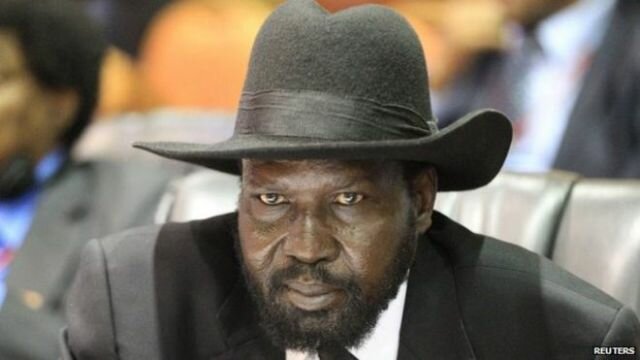(Amen Teferi – Walta Info) - Egypt and Ethiopia have a long history of rancor over the Nile River
, but now they are trying to settle their longstanding disagreement through negotiations that is frequently punctured with tensions and suspicions. Lately, Egypt jumped in and proposed the World Bank to serve as a facilitator in its negotiation with Ethiopia over the GERD, which its FM Mr. Sameh Shoukry dubbed as “neutral and decisive.” Ethiopia simply responded this sudden query with cold and disinterested fashion –“I will look to it.”
I think Egypt’s position on Ethiopia’s massive dam on the Blue Nile River is faulty. GERD, which Egypt says threatens its water security, is now 63% completed. As the Egyptian FM Shoukry recently said last week “Egypt has recognized the importance of economic development to Ethiopia, but science should be the determining factor on how we manage this important issue.” But, is Egypt’s position and approach to the GERD scientific?
Nonetheless, Ethiopia maintains that the Grand Renaissance Dam's construction will not reduce Egypt's share of the river. It also insisted that the dam is indispensible to its development, pointing out that 95 million citizens don't have access to electricity. Last week on Tuesday meeting Foreign Minister Workneh Gebeyehu said Ethiopia will consider Egypt's new proposal but he adjoined that dispassionate response with a remark “this dam is not going to cause any significant harm.”
Egypt already receives the lion's share of Nile waters: more than 55 billion of the around 88 billion cubic meters of water that flow down the river each year. Egypt loves to cruise over the Nile River and enjoy the “smelling of the breeze,” or “Sham el-Nessim” alone and seems to want to sail forever without Ethiopia or Sudan. Egypt was promised to take more than 55 billion cubic meters of water by the 1929 and 1959 colonial negotiations that entirely ignore the needs of other Nile nations and Ethiopia had rejected these treaties as unfair.
Egypt has not a clear idea what impact the GERD will actually have and it seems to have no idea what to do about it. But Ethiopia often insists that the dam will not cause significant harm to Egypt, Sudan or other downstream countries.
Now Ethiopia is finalizing the construction of the Grand Ethiopian Renaissance Dam on the Blue Nile, and then it will eventually start filling the giant reservoir behind it to power the largest hydroelectric dam in Africa. The most important issue at juncture must be the management of the flow and how fast Ethiopia fills its reservoir, which can hold 74 billion cubic meters of water. A faster fill means blocking more water, while doing it slowly would mean less reduction downstream. This requires consultation. However, once the fill is completed, the flow would return to normal.
Unfortunately, Egypt is worried that the damage could be long-lasting, while some experts say the impact will be far smaller, even minimal. They say Egypt could suffer no damage at all if it works in collaboration with Ethiopia. The two countries need to work together and exchange information, adjusting the rate of filling of the reservoir to ensure that Egypt's own massive reservoir on the Nile, Lake Nasser, stays full enough to meet its needs during the fill.
Unfortunately, that isn't happening so far.
For Ethiopia, the $5 billion dam is the realization of a long-delayed dream. Ethiopia's infrastructure is among the least developed in the world, leaving most of its 95 million people without access to electricity. The hydroelectric dam is to have a capacity to generate over 6,400 Megawatts, a massive boost to the current production of 4,000 Megawatts.
The dam, around 63 percent complete, is likely to be finished this year or early next. “We have already taken into account (the dam's) probable effects on countries like Egypt and Sudan,” Ethiopia's water, irrigation and electricity minister, Sileshi Bekele, told journalists. He added that plans for the fills could be adjusted.
As the GERD comes nearer to the finishing line, frustration among Egyptian officials is starting to show up. Last year in June, Egyptian Foreign Minister Sameh Shukri spoke of "difficult talks" and complained of delays in the impact study. Egyptian leaders in the past have rumbled about military action to stop any dam, but that option seems less likely before or after Egypt signed the Declaration of Principles.
Salman Salman, a Sudanese water expert, said Egypt has long had an attitude of “this is our river and no one can touch it.” Now, he said, "Egypt is no longer the dominant force along the Nile. Ethiopia is replacing it.” As Salman has suggested there is little Egypt can do and it can't stop the construction of the dam. Therefore, it is in the best interest of Egypt to keep negotiating with Ethiopia and Sudan rather than being strong-willed as it did in the past. We hope the visit by the Ethiopian Prime Minister Hailemariam Desalegn to Cairo, (which the FM Sameh Shoukry said is scheduled to be in January 2018 i.e. sometime after went back to Cairo from his visit to Addis Ababa).
2017 was not a year that has seen positive movements in the negotiations over the impact of the Dam that Ethiopia is building on the Blue Nile and we hope 2018 will reward us with a positive push in the consultation to foster honest cooperation among the three countries-Ethiopia, Sudan and Egypt.
As Ethiopia’s ambassador to Egypt, Taye Stke-Selassie, said “No one wants to go into uncharted territory” and no country benefit from the disruption and delay of the negotiation. Hence, “the leaders cannot afford the talks to fail.”
-
Daily Arabic Newspapers Headlines Wednesday 10th January, 2018Next >


